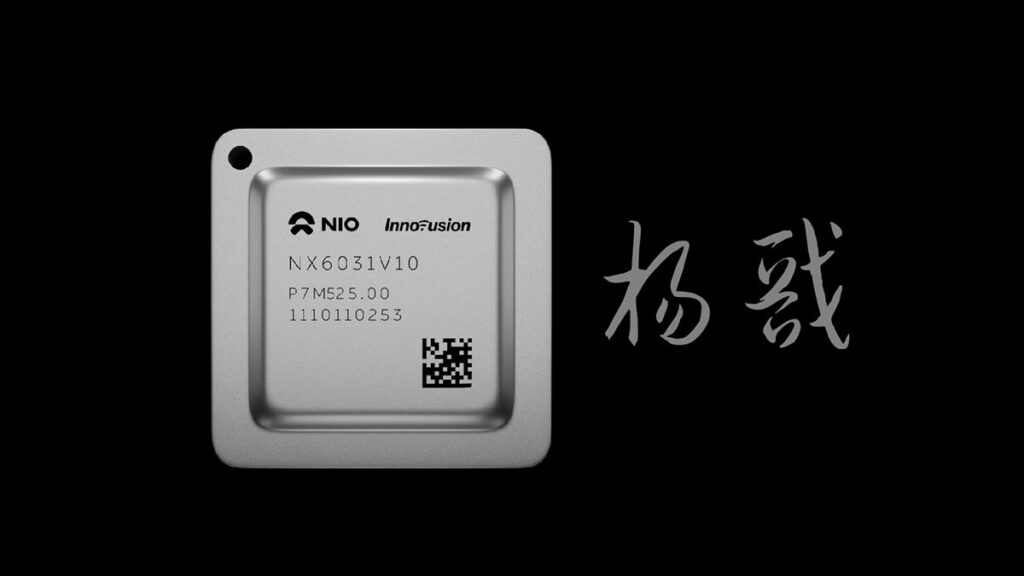The Yangjian chip will allow Nio to save about $100 per vehicle and recover its development costs in about a year, William Li said.

(Image credit: Nio)
The first chip developed in-house by Nio (NYSE: NIO) will officially begin mass production next month to reduce the cost of a core component.
Nio’s first chip, a LiDAR main control chip, will go into mass production in October, William Li, founder, chairman and CEO of the electric vehicle company, said at the Nio IN 2023 innovation day event in Shanghai today.
The chip is named Yangjian, after Yang Jian, a character in the Ming Dynasty (1368-1644) novel Fengshen Yanyi (The Investiture of the Gods).
In the novel, Yang has a third eye on his forehead, similar to the LiDAR that Nio is carrying on the roof of its latest NT 2.0 platform models.
Yangjian is the first in-house developed chip released by Nio’s smart hardware team, featuring an 8-core, 64-bit processor equipped with 8-channel, 9-bit sampling at a sampling rate of 1 GHz.
The chip can efficiently capture raw data from LiDAR sensors and reduce power consumption for LiDAR by 50 percent, latency by 30 percent, and has a point cloud processing capacity of 8 million per second per second, Li said.
Nio’s chip development team has 800 people, Li said, adding that the company is developing the chip not only to stay ahead of the curve, but that cost is also an important consideration.
The Yangjian chip allows Nio to save about $100 per vehicle, Li said in an interview with English-language media, including CnEVPost, after the event.
The chip bears the logos of Nio and Innovusion, the EV company’s LiDAR supplier. All eight of Nio’s models currently on sale are based on the latest NT 2.0 platform, which come standard with ultra-long-range Falcon LiDAR from Innovusion.

(Image credit: CnEVPost)
The Yangjian chip was defined by Innovusion and developed by Nio’s R&D team, Li said in the interview in response to a question from CnEVPost about the division of work between Nio and Innovusion in developing the chip.
Separately, Li said in a group interview with local media today that Nio developed the chip for higher gross margins.
Nio wants to trade short-term investments in R&D for higher gross margins in the long term, and the chip could save Nio hundreds of yuan and recoup R&D costs in about a year, he said.
The Yangjian chip is Nio’s first attempt and didn’t take much effort from the chip team, Li said, adding that the company is working on its main chip and will release it at the right time.
The release of the Yangjian chip confirms a report from a year ago. On October 9, 2022, LatePost reported that Nio had assembled a chip team the size of nearly 300 people to work on both self-driving chips and LiDAR chips.

